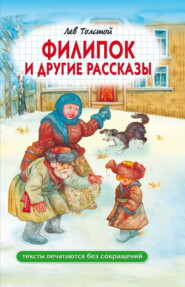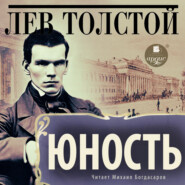По всем вопросам обращайтесь на: info@litportal.ru
(©) 2003-2025.
✖
War and Peace: Original Version
Автор
Год написания книги
2019
Настройки чтения
Размер шрифта
Высота строк
Поля
“Annette, for God’s sake, do not refuse me,” the countess said suddenly, blushing, which looked very strange with her ageing, thin, solemn face, as she took the money out from under the handkerchief.
Anna Mikhailovna instantly realised what the matter was and eagerly leaned over in order to hug the countess at the proper moment.
“This is for Boris from me to have his uniform made …”
Anna Mikhailovna embraced her eagerly and wept. The countess wept too. They wept because they were friends, and because they were kind-hearted, and because they, who had been friends from their youth, were concerned with such a base item as money, and because their youth was past and gone … But for both, their tears were gratifying.
XXII
Countess Rostova and her daughter and an already large number of guests were sitting in the drawing room. The count showed the male guests through into the study, offering them his own connoisseur’s collection of Turkish pipes. From time to time he came out and asked if she had arrived yet. They were expecting Marya Dmitrievna Akhrosimova, known in society by the nickname of the fearsome dragon, a lady renowned not for her wealth or her distinctions, but for her straightforward thinking and frank simplicity of manner. Marya Dmitrievna was known to the royal family, she was known to the whole of Moscow and the whole of St. Petersburg, and both cities, while marvelling at her, chuckled in secret over her rudeness and told jokes about her: nonetheless everyone without exception respected and feared her.
In the smoke-filled study the conversation was about the war, which had been declared in a manifesto, and about the levy. No one had yet read the manifesto, but everyone knew it had been published. The count sat on the ottoman between two other men who were smoking and talking. The count himself did not smoke or talk but, inclining his head first to one side and then to the other, he watched the smokers with evident enjoyment and listened to the conversation of his two neighbours, whom he had pitted against each other.
One of the speakers was a civilian, with a wrinkled, bilious, clean-shaven, thin face, a man already approaching old age, although he was dressed like a most fashionable young man: he was sitting with his legs up on the ottoman, with the air of being quite at home and, having thrust the amber mouthpiece deep into his mouth from one side, was fitfully drawing in the smoke and screwing up his eyes. He was a well-known Moscow wit, the old bachelor Shinshin, a cousin of the countess, who was referred to in the salons of Moscow as an affected fop. He seemed to be speaking with condescension towards his conversation partner. The other, a fresh, pink Guards officer, irreproachably washed, buttoned and combed, was holding the amber mouthpiece in the centre of his mouth and drawing the smoke in lightly with his pink lips, releasing it in rings from his shapely mouth, which seemed expressly made for the blowing of smoke rings. He was the lieutenant Berg, an officer of the Semyonovsky Regiment, with whom Boris was to travel to the regiment and about whom Natasha had been teasing Vera, the eldest of the young countesses, calling Berg her fiancé. Berg moved on from conversation about the war to his own affairs, unfolding his future plans for service in the army, and was evidently very proud to be conversing with such a celebrity as Shinshin. The count sat between them and listened carefully. The pastime that the count found most agreeable, apart from playing boston, which he greatly loved, was playing the role of listener, especially when he managed to pit two lively and loquacious conversation partners against each other. Although Berg was clearly not a loquacious partner, the count observed on Shinshin’s lips a mocking smile that seemed to say: “Watch how I sort out this little officer.” And the count, without the slightest animus against Berg, was amusing himself by discovering the wit in Shinshin’s every word.
“Well, come on, old man, my highly esteemed Alphonse Karlovich,” Shinshin said, laughing and combining, in the manner which was the distinguishing feature of his speech, the most trivial Russian expressions with refined French phrases. “Aren’t you counting on having an income from the treasury, and don’t you want the regiment to pay you a little something too?”
“Oh no, Pyotr Nikolaevich, I simply wish to demonstrate that there are far fewer advantages to being in the cavalry than in the infantry. Now, just imagine my situation, Pyotr Nikolaevich.”
Berg always spoke very precisely, calmly and politely. His conversation always concerned only himself, and he always remained calmly silent while the talk was of something that had no direct connection with him. He could remain silent like this for hours at a time, without feeling the slightest embarrassment himself or provoking it in anyone else. But as soon as the conversation concerned him personally, he would begin speaking at length and with obvious enjoyment.
“Just imagine my situation, Pyotr Nikolaevich, if I were in the cavalry, I would receive no more than two hundred roubles every four months, even at the rank of lieutenant, but now I receive two hundred and thirty,” he said with a gleeful, self-satisfied, egotistical smile, regarding Shinshin and the count as if it were obvious to him that his success would always be the main goal of everyone else’s desires.
“What’s more, Pyotr Nikolaevich, having transferred to the Guards, I’ll be more easily noticed,” Berg continued, “and there are openings in the Guards infantry far more often. And then, imagine for yourself how well I can get by on two hundred and thirty roubles.”
He paused and then continued triumphantly:
“I can put money away and send some to my father as well,” he said and blew out a smoke ring.
“The accounts are balanced. As the proverb says, a German can thresh grain on the head of an axe,” said Shinshin, moving the amber mouthpiece to the other side of his mouth and winking at the count.
The count burst out laughing. The other guests, seeing Shinshin making conversation, came over to listen. Berg, failing to notice either mockery or indifference, related at length and in precise detail how, by moving to the Guards, he had already gained one rank’s advantage over his corps comrades, and how in wartime the company commander might well be killed so that he, as the remaining senior officer, could very easily become company commander, and how everybody in the regiment loved him, and how pleased his papa was with him. The listeners all waited with the count, hoping for something funny, but nothing funny came. Berg was clearly relishing telling them all this, and had not the slightest suspicion that other people might have their own reasons for listening. But everything he told them was so nice and proper, the naïvety of his young egotism was so transparent, that he quite disarmed his listeners and even Shinshin stopped laughing at him. He thought Berg not worth talking to.
“Well, old man, whether you are in the infantry or the cavalry, you will always get ahead anywhere, that I prophesy. I predict a brilliant career for you,” he said, patting Berg’s shoulder and lowering his legs from the ottoman. Berg smiled in delight. The count, followed by the guests, went out into the drawing room.
XXIII
It was that moment before a formal dinner when the guests, all assembled in their finery and anticipating the summons to the hors d’oeuvres, refrain from starting long conversations yet feel they ought to keep moving about and not remain silent, lest they show impatience to take their seats at the table. The hosts keep glancing at the door and occasionally exchange glances with each other. The guests try to guess from these glances for whom or for what they are still waiting: an important relative who is late or the food which, according to the information from the kitchen, is not yet ready. In the servants’ room the servants have not yet been able to start discussing the ladies and gentlemen, because they keep having to get up for new arrivals.
In the kitchen meanwhile the cooks are growing fierce and ill-tempered, moving in their white hats and aprons between the stove, the spit and the oven and shouting at the kitchen boys, who at such moments become especially timid. The coachmen at the entrance draw up in lines and, having settled down comfortably on their coachboxes, chat among themselves or drop into the coachmen’s room to smoke a pipe.
Pierre arrived and sat awkwardly in the middle of the drawing room, on the first armchair he came across, blocking everybody’s way. The countess tried to induce him to speak, but he gazed naïvely around through his spectacles, as though searching for someone, replying in monosyllables to all the countess’s questions. He was in people’s way, and he was the only one who was unaware of it. A large number of the guests, knowing about the incident with the bear, looked at this big, fat, meek man with curiosity, wondering how such an unassuming duffer could possibly have played such a trick on a policeman.
“Did you arrive recently?” the countess asked him.
“Oui, madame,” he replied, looking around the room.
“Have you not seen my husband?”
“Non, madame,” he said, smiling quite inappropriately.
“I believe you were in Paris recently? How very interesting.”
“It was very interesting,” he replied, debating with himself where that Boris, to whom he had taken such a liking, could have got to.
The countess exchanged glances with Princess Anna Mikhailovna. Anna Mikhailovna realised that she was being asked to entertain this young man and, seating herself beside him, began to talk about his father, but he answered her as he had the countess, in words of a single syllable. The guests were all occupied with each other. The sound of dresses rustling could be heard on every side. “The Razumovskys … It was quite exquisite … You are most kind … Countess Apraksina … Apraksina …”
The countess rose and went out to the entrance hall.
“Marya Dmitrievna?” her voice said in the hall.
“The very same,” replied a gruff woman’s voice, and then into the room came Marya Dmitrievna, who had arrived with her daughter.
All the young and even the older ladies, apart from the most elderly, stood up. Marya Dmitrievna halted in the doorway, and from the height of her corpulent frame, holding high her beautiful fifty-year-old head with its grey ringlets, she ran her eye over the guests. Marya Dmitrievna always spoke in Russian.
“Dear name-day girl and children,” she said in her loud, rich voice that subdued all other sounds. “I would have paid you a visit this morning, but I don’t like roaming about in the mornings. I suppose, you old sinner,” she said to the count, who was kissing her hand, “you are probably bored in Moscow? Nowhere to run the dogs? But what’s to be done, old man, when these little chicks grow up …” She indicated her daughter, who was quite unlike her mother, a rather attractive young lady who appeared as tender and sweet as her mother appeared coarse. “Like it or not, you have to look for suitors for them. There are yours, now, and all of them of age.” She pointed to Natasha and Sonya, who had come into the drawing room.
When Marya Dmitrievna arrived, everyone had gathered in the drawing room, anticipating the exodus to the dinner table. Boris came in as well, and Pierre immediately attached himself to him.
“Well now, my Cossack.” (Marya Dmitrievna always called Natasha a Cossack.) “What a winner this girl’s become!” she said, stroking Natasha, who had approached her hand fearlessly and happily. “I know she’s a little scallywag, and she ought to be whipped, but I adore her.”
From out of her vast reticule (Marya Dmitrievna’s reticule was known to everyone for the abundance and variety of its contents) she extracted a pair of sapphire drop earrings and, after handing them to the glowing, ruddy-cheeked name-day girl, instantly turned away from her and, catching sight of Pierre, said to him:
“Hey, hey, my dear fellow! Here, come over here.” She spoke with a deliberately quiet, modulated voice, the way people speak to a dog that they want to scold. “Here, my dear fellow …”
Pierre, somewhat alarmed, went over, gazing at her through his spectacles naïvely and merrily, like a schoolboy, as though he fully intended to enjoy the forthcoming amusement as much as everyone else.
“Come here, come here, dear fellow! I was the only one to tell your father the truth when he got into a predicament and it’s God’s own will that I should tell you too.”
She paused. Nobody said a word, waiting for what would happen next and sensing this was only the preamble.
“A fine boy, what can I say! What a fine boy! His father’s on his deathbed, but he’s having fun, mounting a policeman on a bear. For shame, my good fellow, for shame! You’d do better to go off to the war.”
She turned away and proffered her hand to the count, who could barely restrain his laughter. Pierre simply winked at Boris.
“Well then, to table, I think it’s probably time,” said Marya Dmitrievna. The count and Marya Dmitrievna went in first, followed by the countess, who was escorted by the colonel of the hussars, an important man, for he would be taking Nikolai to his regiment; then came Anna Mikhailovna and Shinshin. Berg lent his arm to Vera. Marya Dmitrievna’s daughter Julie, who constantly smiled and rolled her eyes and had not let Nikolai get away from her side since the moment she had arrived, went to the table with him. They were followed by other couples, extending right across the hall, and behind all of them the single figures of children, tutors and governesses. Footmen began bustling about, chairs clattered, music struck up in the gallery and the guests took their places. The sounds of the house musicians gave way to the sounds of knives and forks, the voices of the guests, the quiet footsteps of the venerable, grey-haired footmen. The countess sat at the head of one end of the table with the ladies, Marya Dmitrievna on her right, and Anna Mikhailovna on her left. At the other end sat the count with the gentlemen, the colonel of hussars on his left and Shinshin on his right. Along one side of the long table sat the more senior young: Vera beside Berg, Pierre beside Boris; and along the other side sat the children with their tutors and governesses. The count peered past the crystal, the bottles and bowls of fruit at his wife, although in fact all he could see was her tall cap with its light-blue ribbons, while he assiduously poured wine for his neighbours, without forgetting himself. The countess also, while not forgetting the obligations of a hostess, cast meaningful glances past the pineapples at her husband, the redness of whose bald head and face contrasted, it seemed to her, more sharply than usual with his grey hair. At the ladies’ end there was a continuous, even babbling; at the male end the voices sounded louder and louder, especially that of the colonel of hussars, who ate and drank so much, growing redder and redder as he went, that the count kept holding him up as an example to the other guests. Berg was quietly telling the disagreeably smiling Vera about the advantages of wartime from the financial point of view; Boris was naming the guests at the table for his new friend Pierre and exchanging glances with Natasha, who was sitting facing him. Pierre, who had involuntarily absorbed the contempt of St. Petersburg for Muscovites, confirmed with his own observations all that he had heard about the manners of Moscow society. It was all true: the prim conventionality (dishes were served to guests according to rank and age), the narrowness of interests (no one was concerned with politics) and the warm hospitality, to which he nonetheless did full justice. Of the two soups, he chose the turtle to start with, then ate the pie, then the woodcock sauté that the count had liked so much; he did not miss a single dish, or a single wine, which the butler thrust out mysteriously from behind his neighbour’s shoulder in a napkin-swathed bottle, intoning quietly: “Dry Madeira, Hungarian, Rheinwein” and so on. He held up whichever crystal wineglass with the count’s monogram first came to hand from the set of four that stood before every place-setting and he drank with pleasure, looking at the guests with an expression that grew increasingly agreeable. Natasha, sitting opposite him, looked at Boris the way thirteen-year-old girls look at a boy whom they have kissed for the first time that morning and with whom they are in love, smiling now and again. Pierre continually glanced at her and was met by the gaze and the smile intended for Boris.
“Strange,” he whispered to Boris, “she is not good-looking, the younger Rostov girl, this little black-haired one here, but what a lovely face! Don’t you think so?”
“The elder girl is better-looking,” replied Boris, smiling almost imperceptibly.
“No, but just fancy that! All the features are irregular, but how wonderfully lovely she is.”
And Pierre kept looking at her. Boris expressed surprise at Pierre’s having such strange taste. Nikolai was sitting far away from Sonya beside Julie Akhrosimova, replying to her affectionate and ecstatic utterances, while constantly glancing at his cousin to reassure her and make her feel that wherever he might be, at the other end of the table or the other end of the world, his thoughts would always belong to her alone. Sonya smiled ostentatiously, but she was clearly already tormented by jealousy, turning pale and red by turns and straining with all her might to hear what Nikolai and Julie were saying to each other. Natasha, to her chagrin, was sitting with the children, between her little brother and a fat governess. The governess looked around uneasily, constantly whispering something to her charge and immediately glancing at the guests in anticipation of approval. The German tutor was trying to remember all the various kinds of dishes, desserts and wines in order to describe it all in detail in a letter to his family at home in Germany, and was highly offended that the butler with the bottle wrapped in a napkin carried it past without serving him. The German frowned and tried to pretend that he had not wished to be given this wine, but he was offended, because no one would understand that he wanted the wine not to quench his thirst, not out of greed, but out of genuine intellectual curiosity …
XXIV
Natasha was clearly unable to sit still. She pinched her brother and winked at the governess, at which fat Petrusha almost burst his sides laughing, and suddenly she leaned her entire body across the table towards Boris, horrifying the governess as she did so by spilling the kvass from her glass all over the pristine tablecloth and, ignoring the rebuke that followed, demanding all his attention for herself. Boris craned towards her and Pierre also listened to hear what this little black-haired creature would say. Despite her irregular features, to his strange fantasy she seemed far more attractive to him than anyone else he had seen at this table.

















